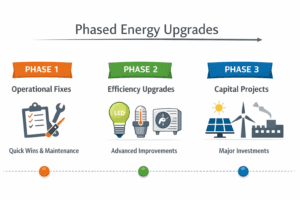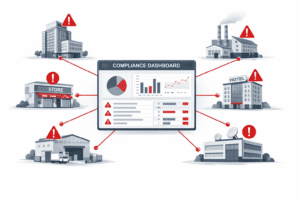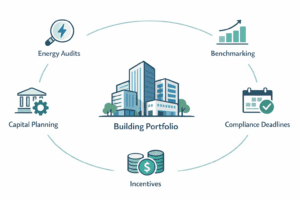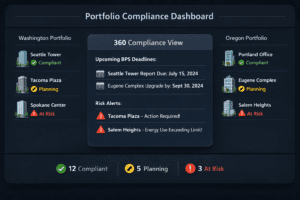Introduction
In the world of construction projects, contractors play a crucial role in turning visions into reality. However, understanding the legal challenges associated with contractual obligations is essential to ensure project success. This blog post aims to shed light on the significance of comprehending contractual obligations, explore the legal framework surrounding them, address common challenges faced by contractors, and provide strategies to navigate these challenges effectively.
Understanding Contractual Obligations
Contractual obligations refer to the responsibilities and duties outlined in the contract between parties involved in a construction project. These obligations cover a wide range of aspects, such as project timelines, deliverables, quality standards, payment terms, and more. It is vital for contractors to have a clear understanding of these obligations as any non-compliance can lead to legal disputes and financial repercussions.
To ensure a comprehensive grasp of contractual obligations, contractors should thoroughly review the terms and conditions outlined in the contract. This includes understanding the roles and responsibilities of each party, project specifications, performance expectations, payment terms, and dispute resolution mechanisms. Carefully reviewing and understanding these obligations is crucial for contractors, for successful project execution while mitigating potential legal risks.
The Legal Framework for Contractual Obligations

Contractual obligations are governed by a legal framework that encompasses local and international laws, regulations, and industry standards. Contractors must familiarize themselves with the legal requirements specific to their jurisdiction, as well as any applicable international laws. This understanding helps contractors navigate potential legal challenges and ensures compliance with all relevant regulations.
The legal framework surrounding contractual obligations comprises various elements. These include contract law, construction law, building codes, safety regulations, environmental regulations, labor laws, and more. Contractors should stay updated with changes in legislation and industry standards to ensure their contractual obligations align with the current legal landscape.
Non-compliance with contractual obligations can carry significant consequences. While civil penalties are the most common form of penalty for breaches of contractual obligations, certain violations can even lead to criminal penalties. Contractors must be aware of the potential legal ramifications and take proactive steps to ensure compliance.
Common Legal Challenges Contractors Face
Navigating legal challenges is an inevitable part of a contractor’s journey. Understanding and addressing these challenges proactively can save contractors from potential financial losses, reputational damage, and legal disputes. Some of the most common legal challenges contractors face include:
1. Delay in completion or non-completion of projects
Meeting project timelines is of utmost importance for contractors. Delays in completion can result in financial losses, strained relationships with clients, and a damaged reputation. Contractors must allocate resources efficiently, anticipate potential hurdles, and take proactive measures to mitigate risks that could lead to project delays. This may involve incorporating buffer times into project schedules, proper project management, and effective communication with all stakeholders.
2. Misinterpretation of contract terms
Contracts can be complex and subject to interpretation. Misunderstandings or misinterpretations of contract terms can lead to disputes between contractors and other parties involved in the project. To prevent such situations, contractors must thoroughly review the contract terms and seek legal advice if needed before signing any contracts. Clear communication and clarification of ambiguous terms can help avoid potential misunderstandings and ensure everyone involved has a shared understanding of contractual obligations.
3. Disputes over payment terms and conditions
Payment disputes can be a significant source of stress for contractors. Issues may arise related to payment schedules, payment amounts, or disagreements over the quality of work. Clear and detailed communication regarding payment terms and conditions is essential from the outset of the project. Contractors should establish transparent invoicing and payment processes and maintain proper documentation to support their claims. Timely communication and dispute resolution can help avoid unnecessary legal battles and maintain healthy business relationships.
4. Subcontractor issues
Contractors often engage subcontractors to handle specific tasks or provide specialized expertise. However, subcontractor-related issues can arise, leading to disputes in fulfilling contractual obligations. To mitigate these challenges, contractors should practice due diligence when selecting subcontractors, ensuring they have a solid reputation, relevant experience, and appropriate licenses and insurance. Clear contractual agreements should define the scope of work, payment terms, and responsibilities of all parties involved. Regular communication and effective project management with subcontractors are essential to ensure compliance with contractual obligations.
Strategies to Navigate Legal Challenges
To navigate legal challenges effectively, contractors should adopt the following strategies:
1. Importance of meticulous contract review and understanding
Contracts serve as the foundation of any construction project. Thoroughly reviewing and understanding all contract terms and conditions is vital for contractors. This includes clarifying ambiguities, ensuring alignment with project requirements, and identifying any potential risks or unfavorable clauses. Seeking legal counsel during the review process can provide valuable insights, help contractors negotiate favorable terms, and safeguard their interests.
2. Role of legal counsel
Engaging legal counsel with expertise in construction contract law is an excellent investment for contractors. Legal professionals can offer guidance on contract negotiation, review, and ensure compliance with laws and regulations. Their expertise can prove invaluable when dealing with complex legal matters or when disputes arise. Having legal counsel by their side provides contractors with the confidence and knowledge to navigate contractual obligations effectively.
3. Need for effective communication and negotiation skills
Strong communication skills are essential for contractors to build relationships, clarify expectations, and resolve conflicts amicably. Contractors must maintain open lines of communication with all project stakeholders, including clients, subcontractors, suppliers, and regulatory authorities. Effective communication ensures a shared understanding of contractual obligations, facilitates negotiation when disputes arise, and helps mitigate potential legal challenges.
4. Importance of dispute resolution mechanisms
Disputes may still arise despite meticulous planning and communication. Having effective dispute resolution mechanisms in place can help contractors resolve conflicts efficiently and avoid costly litigation. Including clauses specifying the preferred method of dispute resolution in contracts reduces uncertainties. Mediation and arbitration, for example, are alternative dispute resolution methods that provide a faster and less adversarial approach to dispute resolution compared to traditional litigation.
Best Practices for Contractual Compliance

Contractual compliance is crucial for contractors to maintain a good reputation, avoid legal consequences, and cultivate successful long-term relationships. To ensure compliance with contractual obligations, contractors should follow these best practices:
1. Detailed Documentation
Documenting all aspects of the project is essential to support compliance with contractual obligations. This includes maintaining records of contract amendments, change orders, progress reports, meeting minutes, correspondence, and any other relevant project documentation. Detailed documentation serves as evidence in case of disputes and assists in resolving conflicts swiftly and effectively.
2. Maintaining good relationships with all parties involved
Building positive relationships with clients, subcontractors, suppliers, and other stakeholders is fundamental to successful project execution. Open communication, transparency, and fairness foster cooperation, trust, and smoother project operations. Contractors should prioritize effective stakeholder management to prevent misunderstandings, identify and address issues promptly, and cultivate a collaborative work environment.
3. Regular compliance checks and audits
Implementing regular compliance checks and audits helps contractors identify any deviations from contractual obligations promptly. This proactive approach allows for timely corrective measures and minimizes the risk of non-compliance. Regular internal audits can help contractors identify potential compliance gaps and take necessary corrective actions before they escalate into legal issues.
4. Timely dispute resolution
Addressing disputes promptly and professionally is vital to maintain project momentum and positive working relationships. Contractors should prioritize resolving conflicts through negotiation or alternative dispute resolution methods whenever possible. Timely resolution minimizes project disruptions, avoids spiraling legal costs, and preserves the reputations of all parties involved.
Conclusion
Understanding and navigating the legal challenges associated with contractual obligations is an essential aspect of a contractor’s role in construction projects. By comprehending the legal framework, being aware of common challenges, and adopting effective strategies, contractors can enhance their chances of success and mitigate potential legal pitfalls. It is crucial for contractors to equip themselves with knowledge, seek legal advice when necessary, and prioritize transparent communication and meticulous contract management. By adhering to best practices, contractors can meet their contractual obligations while safeguarding their interests and maintaining a positive professional reputation.
Unlock the full potential of your contracting business with VertPro.com, your key to enhanced lead generation. At VertPro.com, we specialize in empowering Contractors like you with a range of cutting-edge solutions and exclusive access to our state-of-the-art Construction Marketplace. As industry trailblazers, we’re dedicated to providing innovative SaaS technology-based tools that help you stay ahead of the curve.
With our expertise in Commercial Energy Audits, Energy Benchmarking and Energy Audits/RCx Plus, we ensure your clients’ compliance with more than 60 Energy Benchmarking and Energy Efficiency Laws. Now is the perfect moment to seize this opportunity and supercharge your lead generation efforts. Sign up for VertPro.com’s comprehensive solutions today and let us be the catalyst for the transformation your contracting business deserves. Your journey to a more energy-efficient future starts right here!















